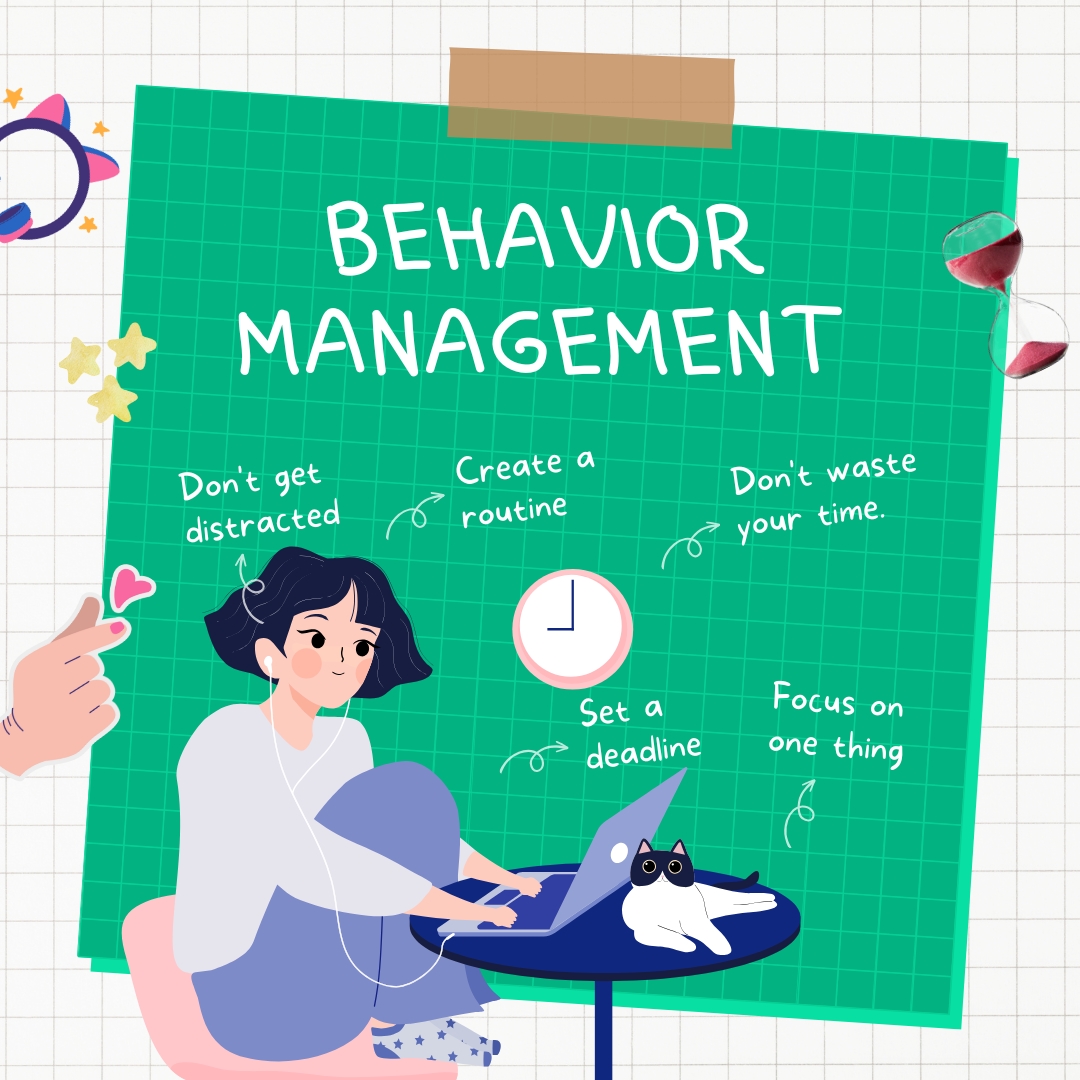BEHAVIOR MANAGEMENT
Health tips are simple suggestions to help you stay healthy and feel better. They include things like eating nutritious foods, staying active, getting enough sleep, and managing stress. By following these tips, you can improve your overall well-being, prevent illnesses, and enjoy a better quality of life. Making small changes in your daily routine, like drinking more water or going for a walk, can make a big difference in your health.
Top Health Tips for a Better Life: Your Ultimate Guide to Wellness
Living a healthy life is a goal that everyone strives for, but it can be challenging to know where to start. Whether you’re looking to improve your diet, increase your physical activity, or reduce stress, making small, manageable changes can lead to significant improvements in your overall well-being. In this comprehensive guide, we’ll explore some of the best health tips to help you achieve a balanced and fulfilling life.
Nourish Your Body with a Balanced Diet
The Importance of a Healthy Diet
A healthy diet is the cornerstone of good health. What you eat affects your energy levels, mental clarity, and even your mood. Incorporating a variety of fruits, vegetables, lean proteins, and whole grains into your meals can provide your body with the essential nutrients it needs to function optimally.
Balanced Diet, Nutrient-Rich Foods, Healthy Eating
When crafting your meals, aim for a balanced plate. Focus on nutrient-rich foods that provide vitamins, minerals, and antioxidants. Avoid processed foods high in sugar, salt, and unhealthy fats, as these can contribute to various health issues like obesity, heart disease, and diabetes. Instead, choose whole foods that are closer to their natural state.

Planning your meals ahead of time can make it easier to stick to a healthy diet. By preparing your meals at home, you have full control over the ingredients and portion sizes. This simple step can help you avoid the temptation of unhealthy fast food or convenient but nutritionally poor snacks.
Stay Active with Regular Exercise
The Benefits of Physical Activity
Regular exercise is another crucial component of a healthy lifestyle. Physical activity not only helps you maintain a healthy weight but also strengthens your muscles and bones, improves cardiovascular health, and boosts your mood by releasing endorphins.
Regular Exercise, Physical Activity, Fitness Routine
Finding an exercise routine that works for you is key. Whether it’s walking, running, swimming, or yoga, the goal is to keep your body moving. Aim for at least 150 minutes of moderate-intensity exercise per week, as recommended by health experts.
Start Slow and Build Up
If you’re new to exercise, start slow and gradually increase the intensity and duration of your workouts. This approach reduces the risk of injury and helps build a sustainable habit. Consistency is more important than intensity when it comes to long-term fitness.
Prioritize Mental Health and Stress Management
The Link Between Mental and Physical Health
Mental health is just as important as physical health. Chronic stress can lead to a variety of health issues, including anxiety, depression, and even heart disease. Managing stress effectively is crucial for maintaining both mental and physical well-being.
Mental Health, Stress Management, Mindfulness Practices
Incorporate mindfulness practices like meditation, deep breathing exercises, or journaling into your daily routine. These techniques can help reduce stress levels, improve focus, and promote a sense of calm.
Practice Gratitude
Practicing gratitude can shift your focus from what’s going wrong in your life to what’s going right. Start a gratitude journal where you write down a few things you’re thankful for each day. This simple practice can improve your overall outlook and reduce feelings of stress.
Get Quality Sleep for Optimal Health
The Role of Sleep in Health
Sleep is often overlooked but is a vital part of maintaining good health. Quality sleep supports cognitive function, emotional well-being, and physical health. Adults should aim for 7-9 hours of sleep per night.
Quality Sleep, Sleep Hygiene, Restful Night
Establishing good sleep hygiene is essential for getting quality rest. This includes maintaining a regular sleep schedule, creating a relaxing bedtime routine, and ensuring your sleep environment is comfortable and free from distractions.
Limit Screen Time Before Bed
The blue light emitted from screens can interfere with your body’s natural sleep-wake cycle. Try to avoid screens for at least an hour before bed to help your body prepare for sleep. Instead, opt for relaxing activities like reading a book or taking a warm bath.
Stay Hydrated for Better Health
The Importance of Hydration
Water is essential for nearly every function in the body, including digestion, temperature regulation, and joint lubrication. Staying hydrated is crucial for maintaining energy levels and overall health.
Stay Hydrated, Water Intake, Healthy Hydration
Aim to drink at least eight 8-ounce glasses of water a day, but your needs may vary based on factors like climate, physical activity, and overall health. Carrying a reusable water bottle can help remind you to drink water throughout the day.
Add Flavor to Your Water
If plain water doesn’t appeal to you, try adding natural flavors like lemon, cucumber, or mint. This can make drinking water more enjoyable and encourage you to stay hydrated.
Regular Health Check-Ups: Prevention is Better Than Cure
The Importance of Regular Health Screenings
Regular health check-ups are essential for early detection of potential health issues. Preventive care can catch problems before they become serious, making treatment more effective.
Regular Health Check-Ups, Preventive Care, Health Screenings
Schedule regular visits to your healthcare provider to monitor your health and discuss any concerns. Keep up with recommended screenings and vaccinations to maintain optimal health.
Keep a Health Journal
Keep track of your health by maintaining a health journal. Record your daily habits, symptoms, and any changes you notice. This can be a valuable tool for discussing your health with your doctor.
Embrace Healthy Habits for a Fulfilling Life
Incorporating these health tips into your daily routine can lead to significant improvements in your overall well-being. Remember, small changes can make a big difference. Whether it’s eating a balanced diet, staying active, managing stress, getting enough sleep, staying hydrated, or keeping up with regular health check-ups, every step you take towards a healthier lifestyle is a step towards a better, more fulfilling life.
By following these tips, you’ll be well on your way to achieving and maintaining good health. Take charge of your health today and enjoy the benefits of a balanced, healthy life.
Maintaining good health doesn’t have to be complicated. By making small, manageable changes to your daily routine, you can improve your well-being and lead a healthier life. From eating nutritious foods to staying active and managing stress, these simple health tips can make a big difference.
One of the most important health tips is to focus on a balanced diet. Eating a variety of fruits, vegetables, lean proteins, and whole grains provides your body with the essential nutrients it needs to function properly. Avoiding processed foods, excessive sugar, and unhealthy fats can help prevent chronic diseases like obesity, heart disease, and diabetes. Staying hydrated by drinking plenty of water throughout the day is also crucial for maintaining good health.
Regular physical activity is another key component of a healthy lifestyle. You don’t need to spend hours at the gym to stay fit. Simple activities like walking, cycling, or even taking the stairs instead of the elevator can have significant benefits. Exercise helps control weight, strengthens muscles and bones, and improves cardiovascular health. It’s also a great way to boost your mood and reduce stress, which is essential for mental well-being.
In addition to diet and exercise, managing stress is vital for overall health. Chronic stress can lead to a range of health problems, including anxiety, depression, and heart disease. Simple practices like deep breathing, meditation, or spending time in nature can help reduce stress levels. Prioritizing sleep is also crucial, as a good night’s rest allows your body to recover and function at its best.
In summary, maintaining good health is about making small, sustainable changes to your daily routine. By eating well, staying active, and managing stress, you can improve your quality of life and enjoy a healthier, happier future.
Eating a balanced diet is essential for maintaining good health. A well-rounded diet provides your body with the vitamins, minerals, and nutrients it needs to function optimally. By incorporating a variety of fruits, vegetables, whole grains, and lean proteins into your meals, you can fuel your body with the energy it needs to get through the day. A balanced diet also helps to maintain a healthy weight, support your immune system, and reduce the risk of chronic diseases like heart disease and diabetes. Making mindful food choices ensures that you’re giving your body the best chance to thrive, both physically and mentally.





